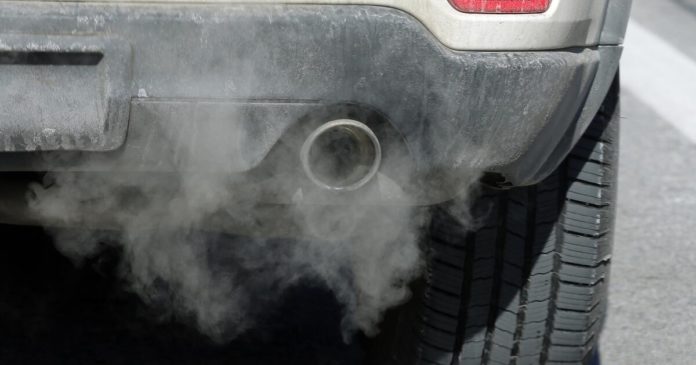The maker of a popular line of vehicle tuning gadgets and software has agreed to pay the U.S. Environmental Protection Agency $2.9 million after the regulator accused the company of selling performance-boosting equipment that enabled customers to bypass air pollution laws.
COBB Tuning, an Austin, Texas.-based company, produced and sold aftermarket accessories at several retail stores, including a former location in Fountain Valley. Since 2015, the company has sold 90,000 illicit products, including exhaust systems that enabled vehicles to bypass pollution-stripping catalytic converters and software that augmented engine combustion, the EPA said.
These so-called “defeat devices” resulted in the release of smog-forming emissions and other pollution above federal standards. The EPA has ordered COBB Tuning to destroy the remaining inventory of these products and inform customers that these devices violate federal clean-air laws.
“Defeat devices significantly increase air pollution from motor vehicles, particularly in communities that already are overburdened by pollution,” said David M. Uhlmann, assistant administrator for the EPA’s Office of Enforcement and Compliance Assurance. “Use of illegal defeat devices has gone on for far too long. EPA will use all of its enforcement tools to hold polluters like COBB Tuning accountable until these illegal practices stop.”
The enforcement action is one of several undertaken in the last decade by federal and state regulators who have attempted to crack down on excessive pollution from emissions-cheating devices.
Some of the largest emission-cheating scandals and penalties have involved vehicle manufacturers, such as Volkswagon’s 2015 Dieselgate, when German carmaker was found to have equipped nearly 500,000 vehicles in the U.S. with illegal software that made the engines seem cleaner than they were. Volkswagen subsequently paid a $2.8-billion criminal penalty.
In December 2023, engine manufacturer Cummins Inc. was dinged for installing illegal software in 600,000 Ram pickup trucks, paying a $1.6-billion penalty.
However, aftermarket products can be more difficult to regulate and track due to a proliferation of manufacturers, retailers and installers.
In a statement, COBB Tuning officials said the company fully cooperated with the EPA investigation and told the agency that it did not develop or market the products as emissions defeat devices. They insist that their product line is now fully compliant, noting that the California Air Resources Board previously determined that more than 200 of the company’s products do not interfere with pollution controls and remain for sale.
“As a company, we take our emissions stewardship seriously, and proactively addressed in real time each area of concern that the EPA identified with how some of our legacy products could be used in an unintended manner,” COBB Chief Executive Jeff King said in a statement. “We had to make difficult choices along the way regarding how and when to make changes to or discontinue certain products that the EPA identified as concerning. We always focused our decision-making process on implementing changes in a way that had the best interests of our enthusiast customers, distribution partners, and the environment in mind. Sometimes those were tough choices, which required immediate action in order to address EPA concerns.”
Defeat devices are often sold to enhance engine performance. They can modify engine combustion, air-flow ratio and ignition timing. However, the software also can disable a vehicle’s emission controls and produce more air pollution.
Typically, a vehicle’s computer detects when it might be producing excessive emissions by illuminating the check engine light and limiting a vehicle’s performance, such as putting the vehicle in “limp mode.” The COBB defeat software had the ability to disable a check engine light and prevent “limp mode” limitations, according to the EPA.
The discontinued COBB Tuning exhaust pipes and illegal tuning software were manufactured for BMW, Ford, Mazda, Mitsubishi, Nissan, Porsche, Subaru and Volkswagen vehicles. The company can continue selling tuning devices and software that California regulators have deemed do not increase pollution above allowable levels.


